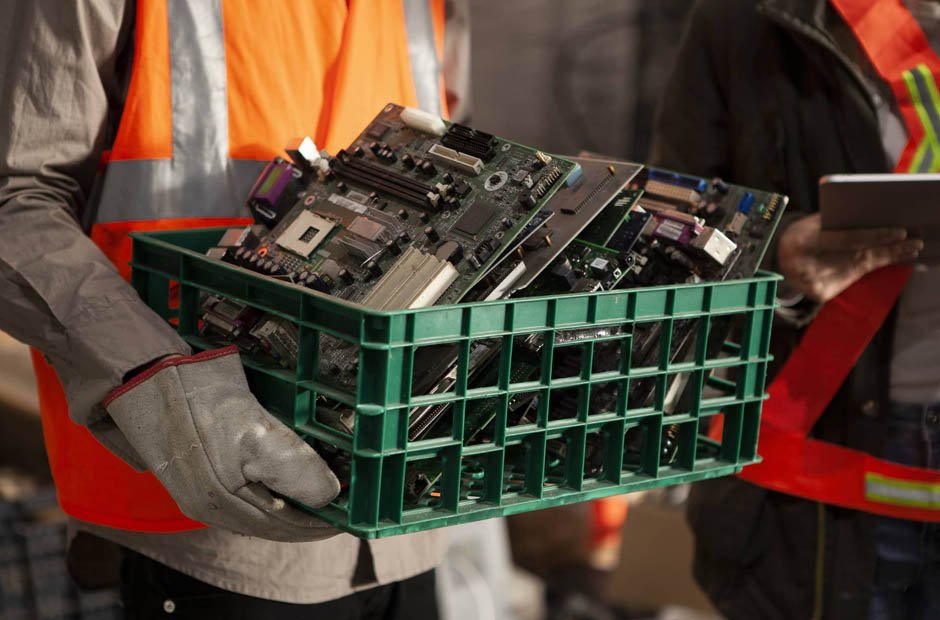Key Takeaways
- Electronics recycling helps reduce environmental impact and conserves natural resources.
- Proper recycling can prevent data breaches and ensure secure disposal of sensitive information.
- Recycled electronics can reduce e-waste and support the creation of new products.
- Community programs and legislation are critical in promoting responsible recycling practices.
What Is Electronics Recycling?
Electronics recycling involves recovering valuable materials from old or obsolete electronic devices. It includes computers, smartphones, tablets, and televisions, which contain many precious and finite resources like gold, silver, copper, and rare earth elements. Proper recycling practices in Albany, NY, help to dispose of in an environmentally sustainable way, significantly minimizing the environmental footprint. Communities and service providers are making participating in electronics recycling easiercycling. Residents can take advantage of Albany NY computer recycling services, which streamline the process of safe and responsible disposal.
Environmental Benefits
One of the critical benefits of electronics recycling is its positive influence on the environment. The EPA states that the energy saved by recycling one million laptops equals the electricity consumed by 3,657 U.S. homes annually. Moreover, electronics contain toxic substances like lead, mercury, and cadmium that can cause substantial environmental harm when disposed of improperly. When these materials end up in landfills, they can leach into soil and groundwater, polluting vital resources. By recycling electronics, we recover valuable materials and prevent hazardous chemicals from contaminating the environment, safeguarding public health and ecosystems.
Data Security and Electronics Recycling
In an era of increasingly prevalent data breaches, it’s vital to ensure that all sensitive information is thoroughly wiped from devices before they are handed over for recycling. Data breaches and identity theft risks increase when devices are improperly disposed of. Secure recycling options often include data destruction services, which ensure that all data is irretrievably wiped or physically destroyed. For example, organizations offering services ensure that data security is a top priority, providing peace of mind alongside environmental benefits.
Economic Benefits
Besides environmental and security advantages, recycling electronics has significant economic benefits. Recovering valuable materials can reduce the need to mine new resources. According to the United Nations University (UNU), electronic waste (e-waste) contains up to 7% of the world’s gold, and much of this can be recovered through proper recycling. Extracting these valuable materials from e-waste can reduce the economic and environmental costs of mining and manufacturing new resources. Furthermore, the recycling industry drives economic growth by creating jobs in the collection, processing, and resale of recovered materials.
Community Involvement and Corporate Responsibility
Community programs and corporate initiatives are critical in promoting responsible recycling practices. Businesses can make a significant impact by offering recycling initiatives for their staff and consumers. For instance, technology companies often offer trade-in and take-back schemes encouraging consumers to recycle their old devices responsibly. Schools and local governments can also contribute by organizing e-waste collection events, which educate the public about the advantages of recycling and provide convenient disposal options. These initiatives foster a sense of responsibility and participation, helping to boost recycling rates and reduce the volume of e-waste headed for landfills.
Regulations and Guidelines
Various regulations and guidelines at the local, national, and international levels help guide responsible electronics recycling. Established in 1989, the Basel Convention regulates the global trade of hazardous waste, especially from developed to less-developed countries. It ensures that e-waste is managed in an environmentally sound manner. Compliance with regulations like the Basel Convention is essential to prevent illegal dumping and promote global recycling efforts. Additionally, local laws often enforce specific recycling protocols, such as mandatory e-waste recycling programs and restrictions on landfill disposal, further driving responsible recycling practices.
How to Get Started with Electronics Recycling
Getting started with electronics recycling is simple and accessible. Numerous neighborhoods provide drop-off spots and designated collection occasions where locals can bring their electronic waste for correct recycling. Consumers can also utilize manufacturer take-back programs, often incentivizing returning old electronics. Additionally, certified e-waste recyclers offer secure and environmentally sound recycling services. It’s crucial to check for certification to ensure that the recyclers adhere to stringent environmental and data security standards, ensuring the recycling process is effective and safe.
















